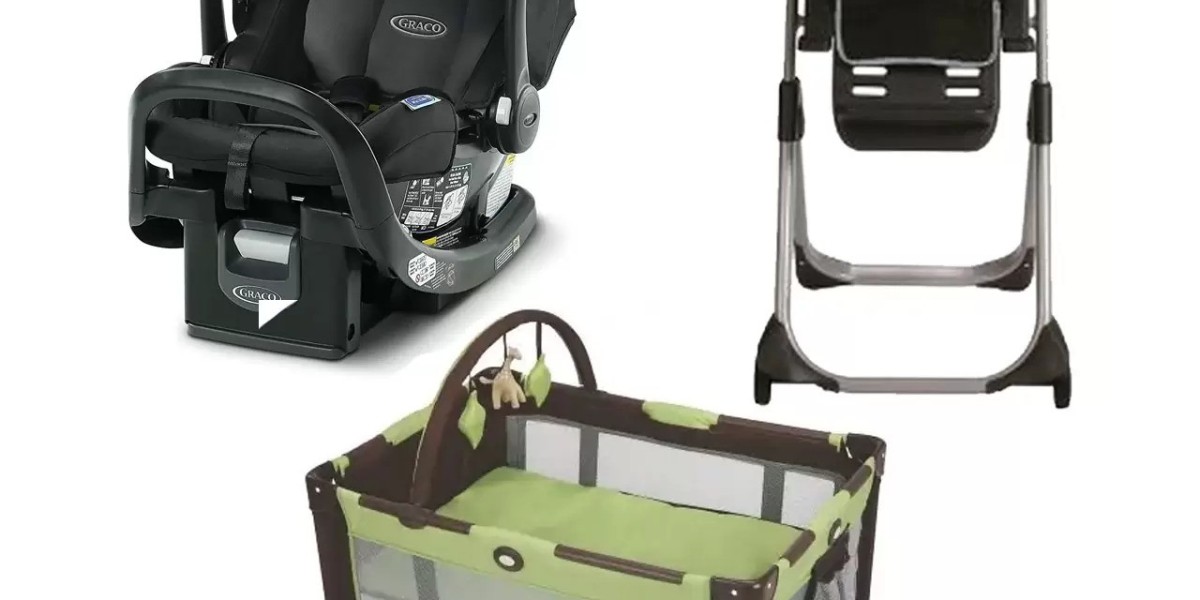Renting baby gear is an emerging viable alternative for traveling with an infant or requiring a temporary baby. But before that, parents must take into consideration some factors that will help them choose the exemplary baby gear rental service to avoid cases of poor services that might compromise the safety of their kids, poor hygiene practices that may expose their kids to health risks, or buying equipment that they do not need.
1. Safety Standards and Certifications
The most critical aspect when renting equipment for use by infants is the safety of the infant. It is important that the rental service is in line with the general safety measures provided by federal agencies like the U.S. CPSC. Look for certification labels from other accreditation bodies, such as the Juvenile Products Manufacturers Association (JPMA), that assure safety law compliance.
Key Points:
Ensure the gear meets national safety standards.
Verify the rental service’s policy on recalls. Ask if they regularly check for product recalls and remove those products from circulation.
Look for safety-certified equipment for kids.
2. Cleanliness and Hygiene
This is because babies are very prone to infections, and any items they come across must be spanking clean. Ask about the company's cleaning practices and make sure that the company has very strong hygiene standards. The rental companies’ products are clean, and many of these companies employ hospital-grade cleaners or child-safe cleaners and disinfectants.
Key Points:
Ask how often items are cleaned and what cleaning products are used.
Verify if cleaning includes both disinfecting and washing fabrics.
Inquire about how the gear is protected during transportation to prevent contamination.
3. Age-Appropriate and Correct Sizing
Ensure that the rental company offers Baby gear rentals that matches your child’s age, weight, and developmental stage. Items like car seats, strollers, and cribs have specific age or weight limits. Using equipment that's too big, too small, or inappropriate for your child’s age can be unsafe.
Key Points:
Confirm that the company offers equipment for your baby’s age and size.
Pay attention to weight and height limits on car seats, cribs, and high chairs.
Ask if they provide accessories such as head support pillows or seat liners for infants.
4. Reputation and Reviews
A reputable company with positive reviews offers more confidence in their services. Take time to research the company online, read reviews from other parents, and consult websites like Google, Yelp, or Trustpilot. Ensure the company has a good track record of providing quality, clean, and safe baby gear.
Key Points:
Read customer reviews to gauge overall satisfaction.
Look for reviews that highlight the company’s safety measures, cleanliness, and customer service.
If possible, seek recommendations from friends or family who have used similar services.
5. Variety and Availability of Equipment
A good rental service should offer a wide range of baby gear, from cribs and high chairs to car seats and strollers. The more options available, the better, as different families have different needs. Ensure the company has what you need in stock, especially during peak travel seasons.
Key Points:
Check if the company offers a variety of items such as car seats, cribs, strollers, high chairs, toys, and baby monitors.
Make sure the equipment is available on the dates you need it, especially if you are traveling during holidays or vacation seasons.
Confirm whether you can rent multiple items in a bundle, which can save money.
6. Delivery, Setup, and Pickup Services
Many Crib rentals companies offer convenient delivery, setup, and pickup services. Ensure the company can deliver to your location, whether it’s a hotel, vacation rental, or a private residence. Verify whether they offer the option to assemble and set up more oversized items like cribs or playpens.
Key Points:
Ask about delivery options and fees, especially for out-of-town or rural areas.
Confirm that they offer setup and assembly for larger items.
If you're on a tight schedule, check if they offer same-day or next-day delivery.
7. Insurance and Damage Policies
It’s important to understand the rental company’s insurance and damage policies. Some companies offer rental insurance for a small fee, which can cover damage, stains, or theft. Always ask what happens if an item is damaged while in your possession and if you’re responsible for replacement costs.
Key Points:
Ask about the company’s damage and liability policies.
Check if they offer optional insurance to cover damage, theft, or loss.
Understand their replacement or repair fees if you accidentally damage an item.
8. Flexibility in Rental Periods
Different families have different rental needs. Some may need baby gear for just a few days, while others may need it for weeks. Make sure the company offers flexible Car seat rentals terms that allow for both short-term and long-term rentals. Also, check if they can extend your rental period if needed.
Key Points:
Ensure the company offers flexible rental durations (daily, weekly, monthly).
Ask if there are any discounts for longer rental periods.
Inquire about their policy on extending rental periods if your plans change.
9. Cost and Affordability
Cost is another major factor when choosing a baby gear rental service. While you want to ensure safety and quality, it’s also important to find a service that fits your budget. Compare prices across different companies and inquire about any additional fees, such as delivery or cleaning charges.
Key Points:
Compare rental costs between different companies.
Look for hidden fees such as cleaning, delivery, or late return charges.
Ask about package deals or discounts for renting multiple items.
By considering these important factors—certifications, cleaning protocols, delivery options, and customer support—you can ensure a smooth and hassle-free rental experience that keeps your baby safe and comfortable.






